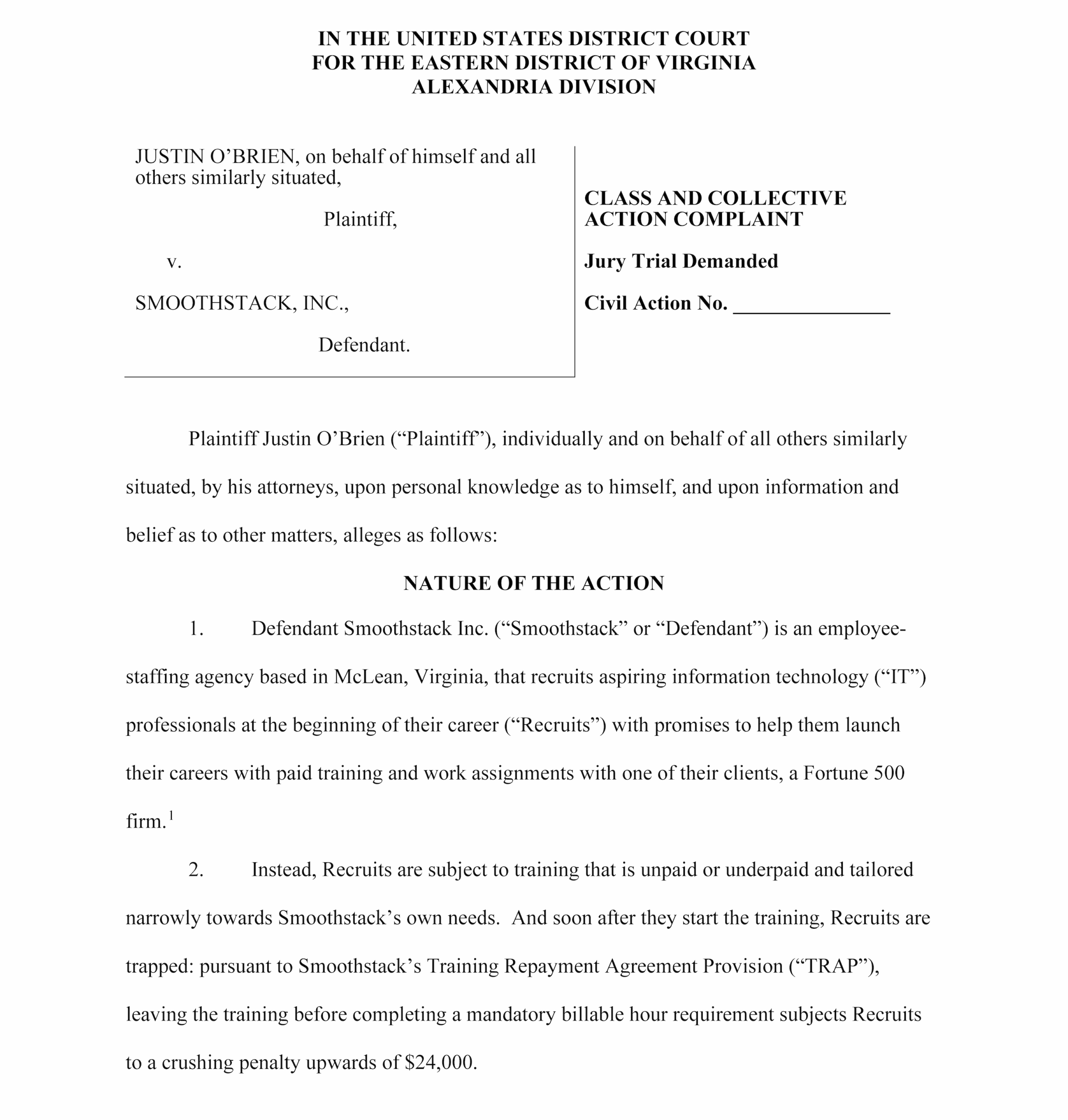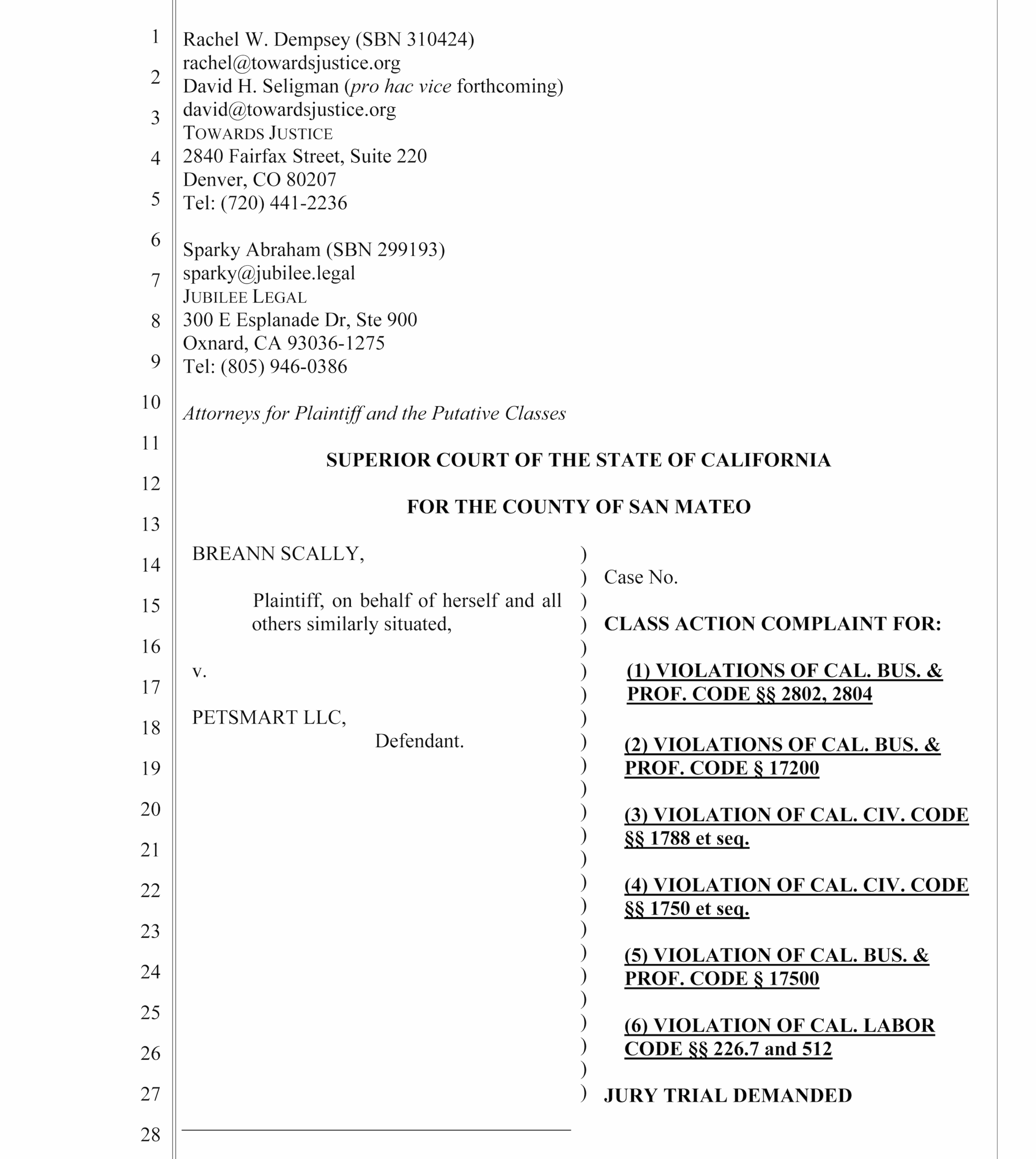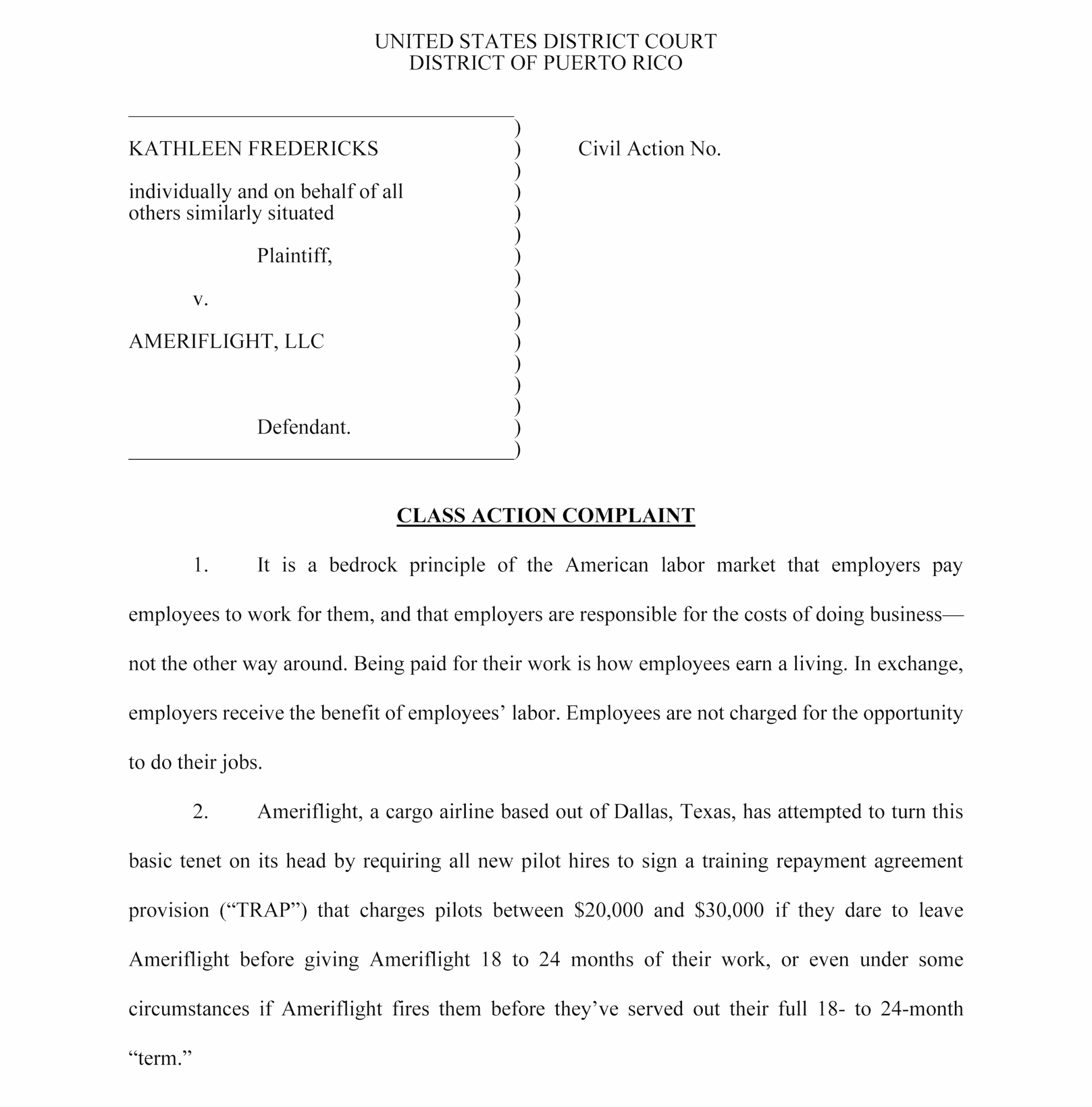Stay-or-Pays & TRAPs
Protecting workers from employer-driven debt traps.
Every year, tens of millions of Americans leave their jobs. But for many of them, this can come with a surprise: a bill. That’s because more employers are relying on “stay-or-pay” contracts to trap workers, requiring them to pay a penalty if they leave a job.
The most common type of stay-or-pay contract is a Training Repayment Agreement Provision (also known as a TRAP). TRAPs and other types of stay-or-pay contracts are often forced on workers as a condition of employment, allowing corporations to use the threat of debt collection or litigation to lock workers in place, limiting their mobility and bargaining power, and leveraging crushing financial penalties when a worker does dare to leave.
What We’re Doing
If left unchecked, stay-or-pay contracts have the potential to leave workers buried in debt just for taking a better opportunity or for having to quit a job to navigate personal hardship. That is why Protect Borrowers has engaged in advocacy, policymaking, and litigation at the federal, state, and local levels to protect workers from stay-or-pay contracts. Read more about our work below!
Featured Investigations
Trapped At Work
In this report, we document the widespread and accelerating use of Training Repayment Agreement Provisions (TRAPs) by big businesses, which often control a large market share of their respective industry, affecting millions of workers every day—from trucking companies, to hospital operators, to retailers, and even financial services firms. We estimate that major employers rely upon TRAPs in segments of the U.S. labor market that collectively employ more than 1-in-3 private-sector workers.
Stay-Or-Pay Compendium
This paper series details how rather than ushering in a golden age of corporate investment in workers, the largest employers across the economy have turned to predatory “Stay-or-Pay” contracts. These contracts are forced on workers as a condition of employment, allowing corporations to use the threat of debt collection or litigation to lock workers in place, limiting workers’ mobility and bargaining power.
Featured State advocacy
Featured Legal Challenges
Featured Deep Dive Series
In THe News
EXPLORE OUR OTHER WORK
Workplace Debt & Labor Exploitation
Every year, tens of millions of Americans leave their jobs. But for many of them, this can come with a surprise: a bill. That’s because more employers are relying on “stay-or-pay” contracts to trap workers, requiring them to pay a penalty if they leave a job. If left unchecked, stay-or-pay contracts have the potential to leave workers buried in debt just for taking a better opportunity or for having to quit a job to navigate personal hardship.
Training Repayment Agreement Provisions (TRAPs)
The most common type of stay-or-pay contract is a Training Repayment Agreement Provision (also known as a TRAP). Employers use these anti-worker contract provisions to trap workers into low-paying jobs with poor working conditions. We work with lawmakers and regulators at the city, county, and state levels to stop worker debt traps and deliver on the promise to ban TRAPs once and for all.
Non-competeS
Across the economy, employers use fine print in employment contracts to trap people at work. We’re working to change that.
State & Local Projects
We support state and local efforts to ensure we have a safe and well-regulated economy that works for everyone across the country by helping legislatures enact new laws, providing technical assistance as agencies implement and enforce these laws, and training local offices to provide services to their communities.


